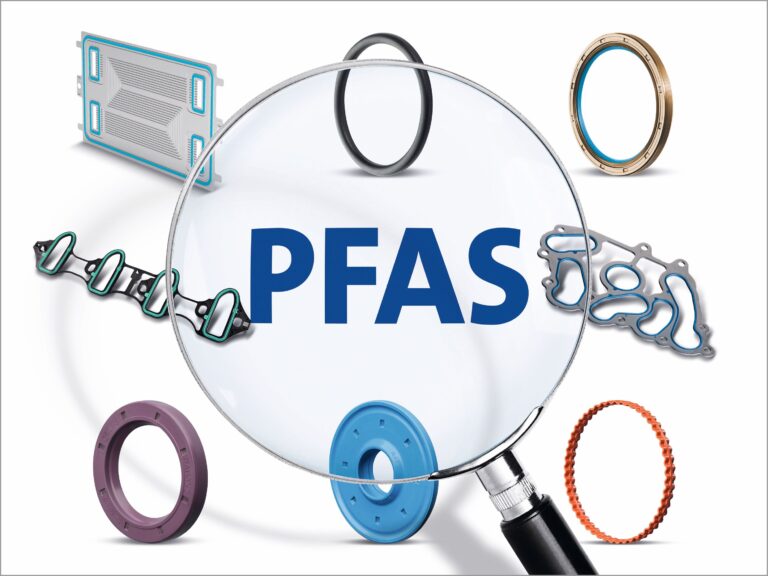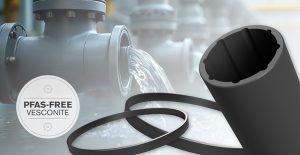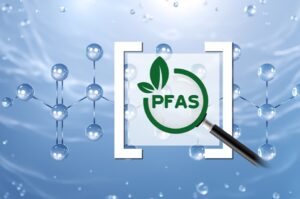Fraunhofer IWM Explores the Impact of a Potential PFAS Ban with Freudenberg Experts

Image source: Freudenberg FST GmbH
The implications of such a ban on fluoropolymers would be particularly critical, as a discontinuation of these high-performance materials would drastically impact many industries. But what kinds of challenges would emerge in the search for adequate substitutes? This was the focus of a recent study by the Fraunhofer Institute for Mechanics of Materials (IWM) in cooperation with materials experts from the Freudenberg Group.
Starting in January 2026, U.S. companies that have manufactured PFAS in the U.S. or imported PFAS, or semi-finished or finished products containing PFAS between 2011 and 2022 will be subject to a reporting rule. Individual states are also starting to restrict the use of PFAS or require reporting. The scope and schedules vary significantly from state to state.
On February 7, 2023, the European Chemicals Agency (ECHA) published a proposal for a comprehensive PFAS ban. The affected companies and organizations were given the opportunity to submit feedback on the potential scientific and socio-economic impacts of such legislation by the end of September 2023. More than 4,400 stakeholders provided over 5,600 comments and additional information. Freudenberg Sealing Technologies also contributed to this consultation. “We support the goals of the European Green Deal and the Chemicals Strategy for Sustainability, but are calling for a differentiated, risk-based approach to chemical regulation than is planned for PFAS,” says Dr. Ruth Bieringer, Vice President of Technology & Innovation, summarizing the position of the company.
Material of choice – but expensive
The newly published study by Fraunhofer IWM, titled “Replacement of Polymeric PFAS in Industrial Applications with Harsh Environments,” underscores that fluoropolymers in particular have become indispensable, especially in the sealing industry. The substances are used in numerous applications, including compressors, motors, transmissions, drive systems, as well as in hydraulics and the food and beverage industry. Fluoropolymers are often the “material of choice” when seals must meet multiple requirements – such as excellent high-temperature resistance, lubricant compatibility, or complying with stringent standards for material with food contact. Other examples include high resistance to aggressive cleaning processes and minimal absorption and transfer of aromas. But fluoropolymers are also costly materials, which are generally reserved for applications where their performance exceeds that of more economical polymers.
The authors of the study conclude that a full replacement of PFAS in the sealing industry is currently unfeasible without facing significant losses in material properties, performance, and product longevity. Given the diversity of over 10,000 PFAS compounds, they advocate for a differentiated and fact-based discussion on regulating this class of substances.
Life cycle assessment as a plausible assessment method
Dr. Raimund Jaeger, Head of the Tribology Business Unit at Fraunhofer IWM, explains: “From our perspective, assessing the life cycle of fluoropolymers, which are considered ‘polymers of low concern’, is a credible method for realistically evaluating potential risks to human health and the environment. All stakeholders involved in this study agree that the safe production and disposal of polymeric PFAS is crucial. As long as precautions are taken to avoid harmful environmental impacts, the continued industrial use of fluoropolymers should remain possible.”
A definitive timeline for the introduction of a European PFAS regulation has yet to be established. Nevertheless, the industry is already bracing for potential changes. At Freudenberg Sealing Technologies, the search for alternatives is running at full speed, despite the current indispensability of fluoropolymers: “We have unique expertise in developing polymer materials such as elastomers and thermoplastics for high-performance industrial needs. Our materials have already enabled many breakthrough technologies in the past, and our materials experts are highly motivated to continue creating innovative solutions for future challenges,” Bieringer says.
Source: Freudenberg FST GmbH







